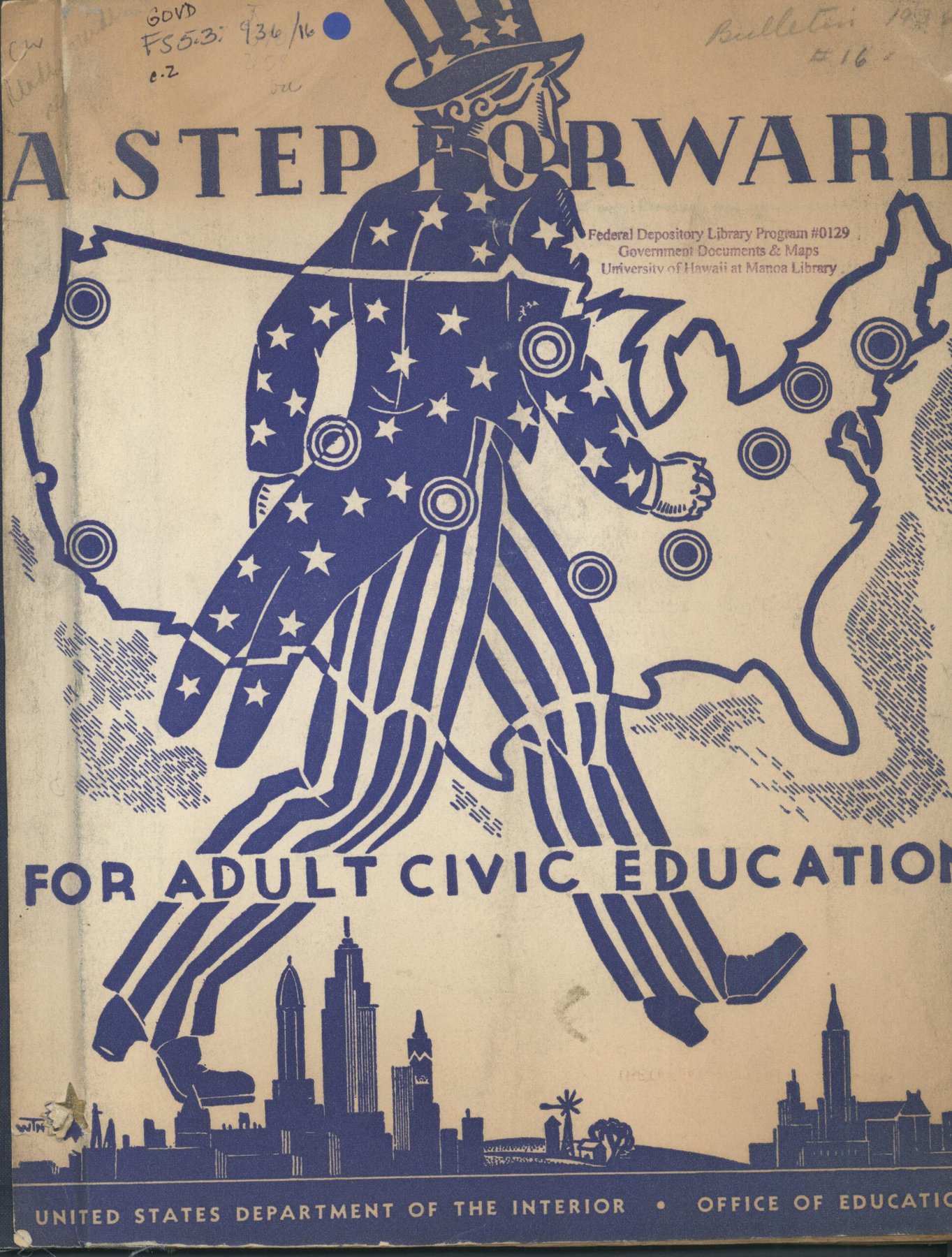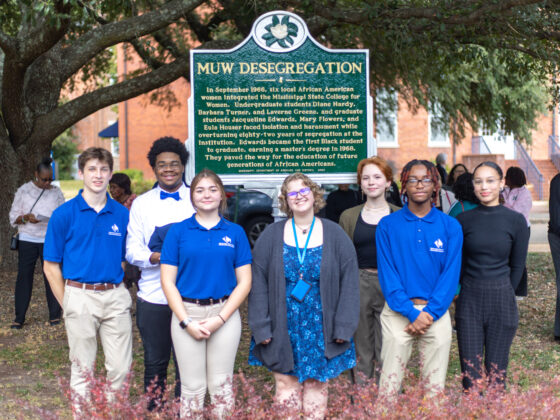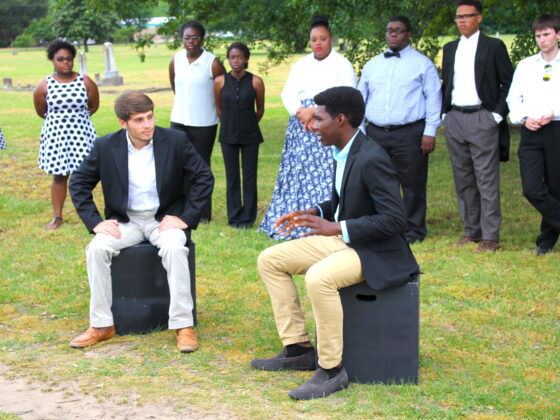Introduction by Ben Speggen:
From the earliest days of the American republic, its founders have understood the connection between an educated populace and long-term civic success. In the 1630s, barely a decade after their arrival in Massachusetts, colonists there had established Harvard University. In the 1860s, even as Abraham Lincoln was shaping America’s future by leading the fight against slavery and for the Union, he oversaw enactment of the Morrell Act, which began creation of the land-grand university system.
In this essay, Joseph J. Eash, III and Carl W. Hunt make a case that Americans of the 2020s should re-think the connection between public education and a viable democracy. To do so, they argue, it’s important to look back at the country’s origin as well as 20th century philosophical shifts that have had lasting implications.
Eash is a retired U.S. Air Force Colonel, having served as Deputy Undersecretary of Defense for Advanced Systems and Concepts during the Clinton administration. Hunt is a retired U.S. Army Colonel and principal co-author and editor of Paradoxes of Power, which he wrote a series about for Our Towns here.
Here is their case that “Now is the Time for Reflection on Public Education,” and how community-level education can serve as the enabler for self-government.
By Joseph J. Eash, III and Carl W. Hunt
One of America’s founding fathers and the third president of the United States, Thomas Jefferson, is known for his vision concerning the role of public education in the country to create and shape our nation. He argued, first, that greater education would better prepare Americans to impartially discredit lies and myths by applying clear and objective thinking. And second, as he noted in a letter to colleague Richard Price in 1789, “that wherever the people are well informed they can be trusted with their own government; that whenever things get so far wrong as to attract their notice, they may be relied on to set them to rights.”
Other founders including James Madison, shared the belief that citizens should have the right to take part in their government, and that educational preparation should be the bedrock for such contributions. Their willingness to invest in education to achieve that goal was a novel idea at the time since most countries in the mid-18th Century believed that the right to govern was inherited through birth.
A century and a half later in 1940, James Bryant Conant, then president of Harvard University, proposed a new principal goal for public education, especially in high schools: preparing students to get a college education. He believed that obtaining a college degree would lift people out of poverty and would lead to the United States becoming “a classless society.”
While his idea spread quickly, Conant failed to anticipate that more people wanting to go to college would make acceptance to institutions of higher learning much more competitive. It also led to other unanticipated consequences.
Prioritizing high school education as a prerequisite for college exposed the disparities between well-funded and under-funded schools, in all realms but specifically in preparing high school learners for college. While heralded as available to all, the path to a college degree was not the same for all, evident today in that still just one-third of the population has an undergraduate degree.
Also, courses of study that didn’t seem “useful” for college admission were deemphasized at best and at worst dropped from public school curriculum. Rather than focusing on educating youth to become discerning adults engaged in their democracy, as Jefferson championed, schools held up advancing onward to college as the symbol of achievement. That goal both eroded civics education and elevated the status of a college degree, creating a perception that those who’d earned one were somehow “better” than those who hadn’t. (This is a pattern that is connected to many of our current political and social strains, and that our friend James Fallows discussed an Atlantic cover story called “The Case Against Credentialism” nearly 40 years ago.)
Three generations after Conant’s initial proposals, college education has not become the great economic equalizer Conant originally hoped it would be. But Conant’s idea helps us see this era’s possibilities.
An emphasis on Conant’s approach (K-12 schools as gateways to college) over Jefferson’s (schooling as preparation for citizenship) has damaged many citizens’ understanding of government from local to federal levels. In many places civics courses have been de-emphasized. Where they still exist they have often been politicized through political culture wars. It is not surprising that many citizens have little appreciation of the complexity and value of government and the responsibility of the governed, as Harvard University political philosopher Michael Sandel explores in his recent TED talk on “The Tyranny of Merit.”
Today, the biggest challenge to our democratic values are not the privileges that come through family ties and position, but rather privileges that come through wealth and power, greatly assisted by access to higher-quality education at all levels. Wealth corrupts not only our education system but also our politics. Instead of achieving a classless society in recent years, more and more of the profit from the efforts of our poorest citizens has gone into the pockets of our wealthiest citizens who are able to exercise greater access to social and political influence.
But there is reason to hope. The COVID-19 pandemic introduced us to the term “essential worker,” many of whom did not have a college degree. We should all hope that this newfound appreciation for those who for whatever reason don’t have a college degree will spur us to more investment in them and in our local public education programs and systems. (This is a theme often discussed on this site, for instance here and here.)
Jefferson was known both for his broad impacting visions – including the drafting of the Declaration of Independence that set our democracy in motion – and for his flaws, as a practitioner of slavery. One of his greatest visions, however, was to educate all Americans to participate in self-governance. This vision is still inspiring.
We need good college preparation in local community high schools. But we also need good vocational training to prepare our youth to succeed even without college. For both, we need citizens who understand the value of government, and how they can make good government happen. Local community schools are vital to this reinvigoration, because to have better government – one serving all citizens equitably – we must have citizens who are better informed and more deeply engaged in their democracy. That is, good government at the top starts with informed citizens at the local level.
Those disenfranchised might be quick to say, “the government hasn’t done a good job, so I won’t do my job as a citizen.” But we know two wrongs have never made a right, and they certainly don’t here. If we want a good government and a functioning society that works for all its citizens, we are obligated to do what Jefferson wisely recommended.
With the clarity of a prepared mind, we must carefully assess political candidates’ qualifications to be sure that they are worthy of the honor of representing us. With that clarity of mind that comes from education we must determine their experience, honesty, integrity, empathy, desire to serve, and ability to collaborate with others to get things done. We must do this at all levels of our democracy – from municipal elections to federal ones. Only then will we have a democracy that works for all of us.
But we need an education system that emphasizes and celebrates civics education and the pillars of democracy. And this starts at the community level.
Good education, based on reasonable national standards, is a critical element of a system that produces self-governance, just as Jefferson, Madison, and our founders intended. From this, we produce better communities, leaders, and policies that promote sustainable leadership, freedom, and security. As a freedom-loving nation, we owe good education to all our citizens based on an understanding of how government and society work together, an education that propagates the ideals of our great experiment. We owe all of this to our future United States of America, as we strive to become that “more perfect union” with liberty and justice for all, not just for some.




